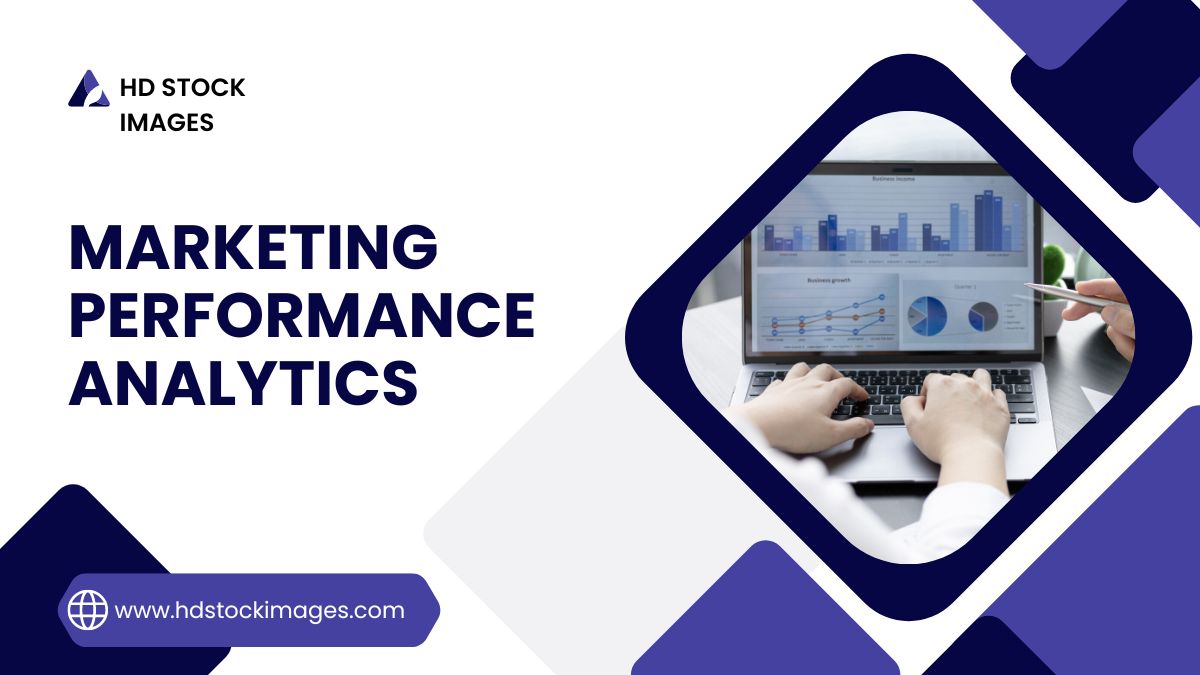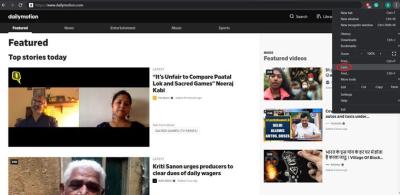Introduction to Social Media Analytics
Social media analytics is the process of gathering, analyzing, and interpreting data from social media platforms. This data helps businesses and individuals understand the performance of their social media efforts, enabling them to make informed decisions and improve their strategies. By leveraging social media analytics, you can gain insights into what content resonates with your audience, which platforms drive the most engagement, and how your brand is perceived online.In today's digital landscape, social media has become a crucial channel for businesses to connect with their audience. With billions of users across various platforms, understanding how your brand performs on social media is essential. Social media analytics provides the tools and metrics necessary to measure your success and identify areas for improvement. Whether you're a small business owner or a marketing professional, mastering social media analytics can give you a competitive edge.
Understanding the Importance of Social Media Metrics
Social media metrics are the key indicators that help you gauge the effectiveness of your social media campaigns. These metrics provide valuable insights into user behavior, content performance, and overall brand impact. Without tracking these metrics, it's challenging to determine whether your efforts are driving the desired results.Some reasons why social media metrics are important include:
- Measuring Success: Metrics allow you to quantify the success of your social media efforts, making it easier to assess whether your strategy is working.
- Optimizing Content: By understanding which content performs best, you can tailor your future posts to align with your audience's preferences.
- Improving ROI: Tracking metrics helps you identify the most cost-effective strategies, ensuring you get the best return on investment (ROI) for your social media campaigns.
- Making Data-Driven Decisions: Metrics provide the data needed to make informed decisions about where to allocate resources and how to adjust your strategy.
In summary, social media metrics are crucial for understanding the impact of your social media activities and for making continuous improvements to your strategy.
Key Social Media Metrics You Should Track
Tracking the right social media metrics is essential for evaluating the performance of your social media strategy. While there are many metrics available, some are more critical than others, depending on your goals. Here are some key social media metrics you should track:
| Metric | Description | Why It's Important |
|---|
| Engagement | Measures how users interact with your content, including likes, comments, shares, and retweets. | High engagement indicates that your content resonates with your audience and encourages interaction. |
| Reach | The number of unique users who have seen your content. | Helps you understand the size of your audience and the potential visibility of your content. |
| Impressions | The total number of times your content has been viewed, regardless of unique users. | Gives insight into how often your content is being seen across the platform. |
| Click-Through Rate (CTR) | The percentage of users who clicked on a link in your post compared to the number of users who viewed the post. | CTR is a strong indicator of the effectiveness of your call-to-action (CTA) and content relevance. |
| Conversion Rate | The percentage of users who completed a desired action, such as signing up for a newsletter or making a purchase, after interacting with your social media content. | Measures the direct impact of your social media efforts on achieving business goals. |
| Follower Growth | The rate at which your social media audience is growing. | Indicates the effectiveness of your content in attracting new followers. |
These metrics provide a comprehensive view of your social media performance, helping you understand what works and where there's room for improvement.
How to Measure Engagement on Social Media
Engagement is one of the most vital metrics in social media analytics, as it reflects how your audience is interacting with your content. Measuring engagement involves tracking various actions users take, such as likes, comments, shares, and more. Here's how you can measure engagement on social media:
- Likes and Reactions: These are the simplest forms of engagement, indicating that users appreciate or agree with your content. Track the number of likes and reactions to understand which content resonates most with your audience.
- Comments: Comments provide deeper insight into user engagement. They show that users are not only consuming your content but are also motivated to interact with it. Analyzing comments can give you qualitative feedback on your content.
- Shares and Retweets: When users share your content, they help expand its reach. This type of engagement is particularly valuable as it indicates that users find your content worthy of sharing with their own followers.
- Clicks: Clicks on links within your social media posts indicate interest in learning more about the content you’re sharing. Tracking click-through rates (CTR) helps you understand the effectiveness of your call-to-action (CTA).
- Mentions and Tags: When users mention or tag your brand in their posts, it shows that your brand is being talked about within the community. Monitoring mentions can help you gauge brand awareness and sentiment.
To measure engagement effectively, you can use tools like Google Analytics, native platform analytics (e.g., Facebook Insights, Twitter Analytics), or third-party tools like Hootsuite or Sprout Social. Consistently monitoring these metrics will help you identify trends, understand what type of content your audience prefers, and adjust your strategy accordingly.
Analyzing Social Media Traffic and Conversions
Social media traffic and conversions are critical metrics that demonstrate the impact of your social media efforts on your overall business goals. Analyzing these metrics helps you understand how effective your social media campaigns are at driving visitors to your website and converting them into customers or leads.Here’s how you can analyze social media traffic and conversions:
- Track Referral Traffic: Use tools like Google Analytics to track how much traffic is coming from social media platforms. Referral traffic data shows which platforms are most effective at driving visitors to your site.
- Monitor Conversion Rates: Once visitors land on your site, it’s essential to track what percentage of them take a desired action, such as making a purchase, signing up for a newsletter, or downloading a resource. This is your conversion rate. Tools like Google Analytics and conversion tracking pixels can help you monitor these actions.
- Analyze Bounce Rates: Bounce rate indicates the percentage of visitors who leave your website after viewing only one page. A high bounce rate from social media traffic may suggest that your content or landing page isn’t aligned with what users expect, requiring a review of your social media strategy.
- Measure Average Session Duration: This metric shows how long users stay on your website after arriving from social media. Longer session durations typically indicate that visitors are finding your content valuable.
To optimize your social media traffic and conversions, ensure that your social media content is closely aligned with your landing pages. Additionally, regularly testing different content formats, CTAs, and targeting strategies can help you maximize your conversion rates.
The Role of Social Listening in Social Media Analytics
Social listening is the process of monitoring social media platforms for mentions of your brand, competitors, products, and relevant keywords. It goes beyond just tracking direct interactions with your content and allows you to gather insights into the broader conversation happening around your brand and industry.Here’s how social listening plays a crucial role in social media analytics:
- Understanding Audience Sentiment: Social listening tools can analyze the tone and sentiment of online conversations. This helps you understand how your audience feels about your brand, products, or services. Positive sentiment indicates approval, while negative sentiment may highlight areas that need attention.
- Identifying Trends and Opportunities: By monitoring keywords and hashtags, social listening can help you identify emerging trends in your industry. This allows you to stay ahead of the curve and capitalize on new opportunities for content creation or product development.
- Competitor Analysis: Social listening can also be used to monitor what people are saying about your competitors. This can provide valuable insights into their strengths and weaknesses, allowing you to adjust your strategy accordingly.
- Improving Customer Service: Many customers use social media to voice their opinions or seek support. Social listening enables you to quickly respond to customer inquiries, complaints, or praises, improving your brand’s customer service and building stronger relationships.
- Enhancing Crisis Management: In the event of a PR crisis, social listening allows you to monitor the situation in real time and respond promptly. By understanding the scope and impact of the crisis, you can manage it more effectively and mitigate potential damage to your brand’s reputation.
Social listening tools like Brandwatch, Hootsuite Insights, and Mention can help you track conversations across various social media platforms. Incorporating social listening into your social media analytics strategy will provide you with a more comprehensive understanding of your audience and the overall market landscape.
Tools for Effective Social Media Analytics
Effective social media analytics requires the right tools to gather, analyze, and interpret data. With numerous tools available, choosing the right ones can significantly impact the success of your social media strategy. Below are some of the most popular and effective tools for social media analytics:
- Google Analytics: While primarily used for website analytics, Google Analytics is invaluable for tracking social media referral traffic, conversion rates, and user behavior on your site. It helps you understand how social media efforts contribute to your overall web performance.
- Hootsuite: Hootsuite is a comprehensive social media management platform that offers robust analytics features. It allows you to track engagement, monitor mentions, and measure the performance of your social media campaigns across multiple platforms.
- Sprout Social: Sprout Social provides detailed analytics reports, helping you track important metrics such as engagement, reach, and sentiment. It also offers social listening features to monitor brand mentions and conversations in real time.
- Buffer: Buffer’s analytics tools allow you to track post-performance, audience growth, and engagement across different social media platforms. It’s particularly useful for small businesses and marketers who need straightforward and easy-to-use analytics.
- Brandwatch: Brandwatch specializes in social listening and analytics, helping you understand brand perception, track competitors, and identify trends. Its advanced features make it ideal for businesses that require in-depth analysis and insights.
- Facebook Insights and Twitter Analytics: These native platform analytics tools provide detailed insights into your content’s performance, audience demographics, and engagement. They are essential for anyone managing a presence on these platforms.
Using these tools effectively requires a clear understanding of your goals and what metrics are most important to your strategy. By integrating multiple tools, you can gain a more comprehensive view of your social media performance, helping you make data-driven decisions and optimize your efforts.
Common Mistakes to Avoid in Social Media Analytics
While social media analytics can be incredibly powerful, it’s easy to fall into common traps that can lead to inaccurate data interpretation and poor decision-making. Here are some common mistakes to avoid:
- Focusing on Vanity Metrics: Metrics like likes and followers are often referred to as vanity metrics because they don’t necessarily reflect true engagement or business impact. It’s important to prioritize metrics that align with your goals, such as conversions, click-through rates, and engagement.
- Ignoring Negative Feedback: Negative comments or feedback should not be ignored. They can provide valuable insights into areas where your brand needs improvement. Addressing negative feedback promptly can also help improve customer satisfaction and loyalty.
- Failing to Set Clear Goals: Without clear goals, it’s challenging to measure success. Define what you want to achieve with your social media efforts, whether it’s increasing brand awareness, driving traffic, or generating leads, and track the metrics that align with these objectives.
- Overlooking Competitor Analysis: Analyzing your competitors’ social media performance can provide valuable insights into what works and what doesn’t in your industry. Neglecting this can put you at a disadvantage, as you may miss out on opportunities to improve your strategy.
- Relying Solely on Automated Tools: While analytics tools are essential, they should not replace human analysis. Tools can provide data, but interpreting that data and making strategic decisions requires human insight and context.
- Not Reviewing Data Regularly: Social media is dynamic, and trends can change rapidly. Regularly reviewing your analytics ensures that you stay on top of these changes and can adjust your strategy accordingly.
Avoiding these mistakes will help you get the most out of your social media analytics, ensuring that your data-driven decisions lead to positive outcomes for your brand.
Frequently Asked Questions (FAQs)
Social media analytics can be complex, especially for beginners. Below are some frequently asked questions to help clarify common concerns:
- What is the difference between reach and impressions?
Reach refers to the number of unique users who have seen your content, while impressions represent the total number of times your content has been viewed, including multiple views by the same user.
- How often should I check my social media analytics?
It’s recommended to review your social media analytics at least once a week. However, for more dynamic campaigns or platforms with high activity, daily monitoring may be necessary.
- What tools should I use if I’m just starting with social media analytics?
For beginners, tools like Google Analytics, Facebook Insights, and Buffer provide user-friendly interfaces and essential features that are easy to navigate.
- How can I improve my social media conversion rates?
Improving conversion rates involves optimizing your content, using clear and compelling CTAs, and ensuring that your landing pages are aligned with your social media posts.
- Why is social listening important?
Social listening helps you understand what people are saying about your brand and industry, enabling you to respond promptly, improve your products or services, and stay ahead of trends.
Conclusion
Social media analytics is a powerful tool that provides valuable insights into your brand’s performance across various platforms. By tracking key metrics, understanding your audience, and utilizing the right tools, you can optimize your social media strategy to achieve your business goals. Avoiding common mistakes and regularly reviewing your analytics will ensure that your efforts are effective and aligned with your objectives. As social media continues to evolve, staying informed and adaptable will be key to maintaining a successful online presence.

 admin
admin








